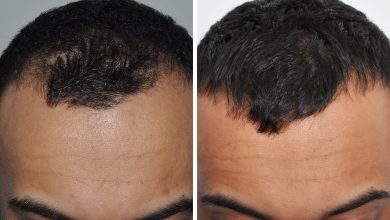
The Human Papillomavirus (HPV) causes genital warts and is a widespread sexually transmitted infection. HPV is spread by sexual intercourse and can infect the vulva, vagina, cervix, rectum, penis, and scrotum through direct skin-to-skin interaction. HPV can occur days or weeks after sexual contact with an infected individual, or it can take years to appear. Even if an infected person has no apparent symptoms, he or she may still transmit the disease to an uninfected person. However, the best chance of transmission is when signs or warts are present. The majority of people infected with HPV do not experience any symptoms. The majority of HPV infections clear up in 8 months, but it can take up to 2 years in some cases.
Symptoms & Signs of Genital Warts
- Anywhere in the genital or anal zone, skin-colored, pink, or white lesions
- Flat or raised lesions with a smooth or rough “cauliflower” look.
- HPV does not normally create itching or burning.
- On a pap smear, HPV can trigger cell changes.
- Sometimes, there are no signs or symptoms.
Prevention
- Abstinence
- HPV vaccine prevents 90 percent of HPV that causes genital warts and 70% of HPV that causes cervical cancer.
- Participation in a monogamous relationship
- The use of condoms
- Quit smoking. Smokers are more likely to contract HPV and to have the virus recur.
Genital Warts Cure Service
There is currently no cure for HPV warts. However, your health care provider can give you some genital warts cure services to help you get rid of the lesions.
- Freezing warts with liquid nitrogen or destroying them with chemical agents is possible.
- More severe warts need surgical excision or laser surgery
- Prescription-only home care is available.
Using a Service
- You should not be judged based on your sexual conduct or who you have sex with, regardless of where you go.
- All advice, details, and tests are free.
- All services are private.
- The tests are optional and can only be taken out with your consent.
- Ask as many questions as you like. Just understand the answers clearly.
- The staff can provide you with as much assistance as you need, especially if you require assistance in telling a partner.
What If I Develop Genital Warts While Pregnant?
- You should inform the doctor or nurse what you’re expecting because it can affect the care options available to you.
- Warts also increase in size and number during pregnancy. They may appear for the first time or reappeared after a long period without warts.
- They can be handled safely during pregnancy. However, treatment will need to be delayed until after the baby is born.
- If warts become very large, they can need to be removed to prevent complications during childbirth. If this isn’t feasible, you may be recommended to have a cesarean birth, but this is extremely uncommon.
- During vaginal birth, the virus may be spread to the infant, although this is uncommon. It can lead to a throat infection in the baby.
Will I be Able to Determine How Long I’ve had Genital Warts?
The presence of warts does not indicate how long you’ve had the infection. If you’re depressed or frustrated about your genital warts and can’t speak to your partner or friends about it, don’t be ashamed to tell the staff at the clinic or general practice.
Is it Necessary for Me to Inform My Partner(s)?
If you’ve been informed you have genital warts, you should have your present or most recent sexual partner(s) checked for sexually transmitted diseases and to see if they have any warts they aren’t aware of.
Do Genital Warts Affect My Ability to Conceive?
No, it’s not true. There’s no proof that developing genital warts or the virus that causes them can affect your fertility.
What Happens If You don’t Treat Genital Warts?
They may heal without any genital warts cure services, remain the same, or increase in size or number if left untreated. The majority of warts will fade away without treatment over time. This could take a long time for some people; particularly if they have an illness that affects the way their immune system functions, making it difficult to combat infection. It’s not necessarily detrimental to your health if you don’t treat your warts, but you might find them bothersome and dislike the way they look. If you treat your warts, you will be less likely to pass them on to others.
Check-up After Treatment
If you’re getting treatment for warts at a clinic or a general practice, you must come back regularly. This allows the doctor or nurse to assess whether the medication is effective or whether a change of treatment is required. Many clinics do not need you to return if you believe your warts have healed. If you need advice or to be checked, they will always be happy to see you.
Get a Medical Examination
You may use a variety of facilities. Choose the one in which you are most at ease. A check-up can be performed at the following locations:
- A genitourinary medicine (GUM) or sexual health clinic
- Some general guidelines; consult a doctor or a practice nurse for more information.
- Some contraception clinics and services for young people
How quickly do warts disappear?
Warts can go away easily in some people, but they may be persistent in others, and treatment will need to be performed many times. It can also take some time for the medication to take effect. There is evidence that smokers react to treatment less well than non-smokers. If the first treatment fails, a second option can be considered. Often warts reappear.
Will Warts Reappear?
Some people only get genital warts once in their lives. Warts will reappear in the case of many others. If you develop new genital warts, it’s impossible to tell if they’re the result of the initial infection or a new one.
If you want any other information regarding the treatment of genital warts, we can help you By click here Genital warts Cure.
Visit and read our most important blog about different niches. Visit always and read our blog.





